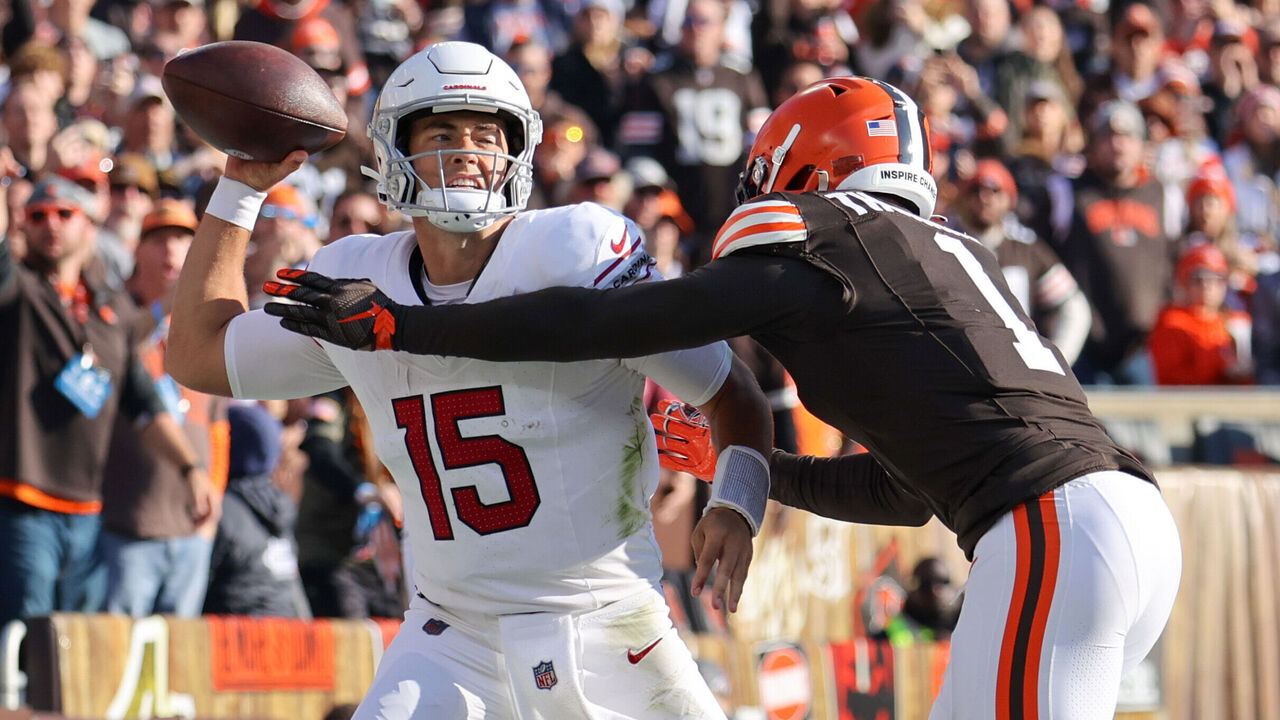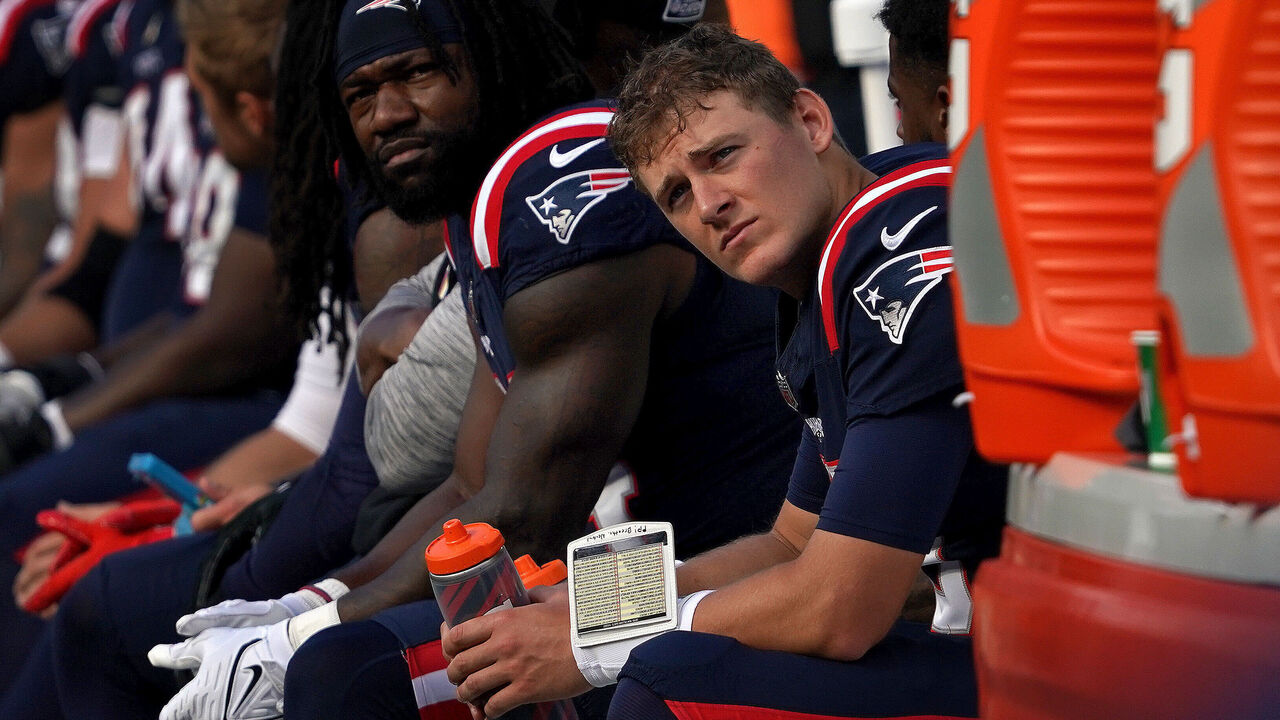4 reasons why the NFL has so many bad quarterbacks
It's hard to pick the moment that Troy Aikman's disgust with the New York Jets' offense in general, and quarterback Zach Wilson in particular, was most palpable.
It might've been when Wilson missed a throw to a wide-open - and stationary - Tyler Conklin in the first half on Monday Night Football or when he somehow underthrew a pitch to halfback Breece Hall. It could've been when, coming back from halftime, partner Joe Buck teed him up with a comment that the Jets' offense was bound to improve, and Aikman said, "Well, you'd think," clearly not convinced that even a dead-cat bounce was likely.
But it was probably in the dying seconds of the 27-6 loss to the Los Angeles Chargers when Wilson completed a series of checkdowns and then a throw down the middle to Conklin against a Chargers defense that had stopped trying.
"This is when Zach comes alive," Aikman said, "Look out." Those last two words were uttered with such disdain that you almost expected them to be followed by the sound of Aikman spiking his headset.
Wilson's display - zero touchdowns, two fumbles, and eight sacks taken - was a fitting bookend to a weekend full of quarterback futility in an NFL season that's included an excessive amount of it. On the same Sunday afternoon, people named Clayton Tune and Tommy DeVito were taking meaningful snaps, continuing a weird trend in which late-round rookies are thrown into the "most important position in sports" if the job hasn't already been handed to a castoff veteran just added to the roster.

Even as players like Patrick Mahomes and Lamar Jackson are redefining elite quarterback play, teams without a superstar at the position are struggling to find someone who's even baseline competent. It's a curious look for a league as big and all-consuming as the NFL and a question for which there are a few theories: Why so many bad quarterbacks?
The draft puzzle
Truly, the league should be better at this. Mahomes was taken 10th overall in 2017 - eight spots after Mitch Trubisky. In the years since, the success rate on high picks isn't unlike that of the Jets' offense on Monday night. Baker Mayfield (first overall, 2018) is on his fourth team, and Sam Darnold (third overall, 2018) is on his third.
Five quarterbacks were selected in the top half of the 2021 draft, and of those, only Trevor Lawrence has proven to be a sure thing. Wilson and Trey Lance flopped, Mac Jones is rapidly approaching flop status, and Justin Fields has the rest of this season to prove that Chicago shouldn't draft his replacement. Meanwhile, MVP candidates Jackson (32nd overall, 2018) and Jalen Hurts (53rd overall, 2020) were available to anyone who wanted them. If there's a trick to predicting NFL success at the position, few draft rooms have figured it out.

The cap crunch
The NFL's hilariously complicated salary structure has seen more money allocated toward high-leverage positions like wide receiver and cornerback in recent years. While this has been most evident in the lack of big paydays for running backs, teams also don't want to spend much on backup quarterbacks, which helps explain why so many roster spots are filled by players like Tune and DeVito. Add in a couple of injuries, and suddenly, your season is in the hands of someone whose job so far has been to provide practice-squad ballast.
Maybe Ryan Fitzpatrick should be required to stay ready to play as a league-wide emergency call-up - especially since the L.A. Rams just signed Carson Wentz for this reason.
It's the system, stupid
Brock Purdy's rise from last overall draft pick in 2022 to one of the league's top passers is the best evidence yet that all of the bad quarterback performances might say more about the guys scheming and calling the plays than the guy actually throwing the ball. But Purdy's success in San Francisco with Kyle Shanahan isn't a one-off. Hurts in Philadelphia and Tua Tagovailoa in Miami both had pretty grim starts to their careers until new coaches and new offensive systems allowed them to flourish. It suggests that teams forever trying to uncover a jewel in the draft (hello, Chicago) would be better served by building an elite coaching staff first and then getting the player to pilot the system later.
It's the stupid system
Except maybe some of what goes into developing a modern NFL offense has simply become too complicated. Josh Dobbs has already entered league folklore by showing up midweek in Minnesota after a trade and then having to play in an emergency when rookie starter Jaren Hall was injured. The story of coach Kevin O'Connell having to explain plays to Dobbs through his headset as he was calling them in the huddle is amazing, but it also must have forced a simplicity on what Dobbs was asked to do. "Look to the left sideline, and if that throw isn't there, hit the guy in the flat." That kind of thing.
Put another way, the number of passers who can process complicated instructions, make adjustments at the line, and make the correct reads in the three seconds before pressure arrives might be smaller than the coaches calling the plays are willing to admit. Not to get overly old-timey here, but one of the reasons an announcer like Aikman gets so annoyed at poor quarterback play is because the league has made so many changes to favor offense since the days when he played. Quarterbacks are protected, and defenders get flagged for almost any contact. It seems like the subtext to Aikman's Wilson-related outbursts this week was: Guys, it shouldn't be this hard.
Scott Stinson is a former national sports columnist for Postmedia News.